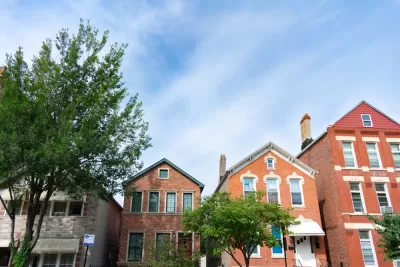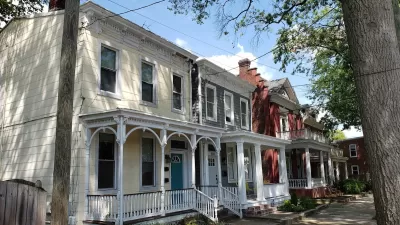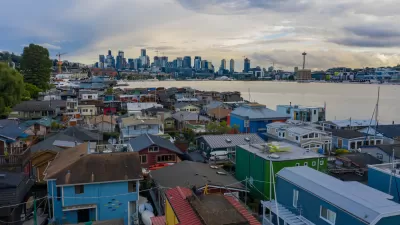A new initiative seeks to support innovations that reduce inequalities in home valuations between Black and white neighborhoods.

Following the 2018 publication of The devaluation of assets in Black neighborhoods, “a report exposing significant inequities that are inherent in housing markets across the U.S.,” a new initiative from the Brookings Institution and Ashoka seeks to “to foster structural innovations that can address systemic racism in the housing market and enable homeowners in Black-majority neighborhoods to realize the value and appreciation of their assets.”
Andre M. Perry and Stuart Yasgur describe the project, which “invited innovators from across the country to submit inspiring ideas for redesigning a more equitable housing market.” According to the authors, “The federal government’s regulation and enforcement functions in housing are critical in closing the valuation gap, but they are not sufficient by themselves. We need an agenda for future research and innovations that scale-up alternatives to traditional appraisals, create new unbiased valuation methods, and diversify the appraisal workforce—96.5% of whom are white.”
“The innovators in the Valuing Homes in Black Communities challenge are working on projects in these areas now—projects we can scale up to lawmakers in Washington. Just as we once built a market on exclusivity, today, we can construct an inclusive one.” The article lists the ten innovators who will receive funding through the program, concluding: “We find ourselves in a rare moment in which researchers, government, corporations, and private citizens can dismantle the drags of racism from housing markets and build an architecture of equality.”
FULL STORY: Redesigning the housing market to build an architecture of equality

Study: Maui’s Plan to Convert Vacation Rentals to Long-Term Housing Could Cause Nearly $1 Billion Economic Loss
The plan would reduce visitor accommodation by 25,% resulting in 1,900 jobs lost.

North Texas Transit Leaders Tout Benefits of TOD for Growing Region
At a summit focused on transit-oriented development, policymakers discussed how North Texas’ expanded light rail system can serve as a tool for economic growth.

Using Old Oil and Gas Wells for Green Energy Storage
Penn State researchers have found that repurposing abandoned oil and gas wells for geothermal-assisted compressed-air energy storage can boost efficiency, reduce environmental risks, and support clean energy and job transitions.

Private Donations Propel Early Restoration of Palisades Playground
Los Angeles has secured over $1.3 million in private funding to restore the Pacific Palisades playground months ahead of schedule, creating a modern, accessible space that supports community healing after recent wildfires.

From Blight to Benefit: Early Results From California’s Equitable Cleanup Program
The Equitable Community Revitalization Grant (ECRG) program is reshaping brownfield redevelopment by prioritizing projects in low-income and environmental justice communities, emphasizing equity, transparency, and community benefits.

Planting Relief: Tackling Las Vegas Heat One Tree at a Time
Nevada Plants, a Las Vegas-based nonprofit, is combating the city’s extreme urban heat by giving away trees to residents in underserved neighborhoods, promoting shade, sustainability, and community health.
Urban Design for Planners 1: Software Tools
This six-course series explores essential urban design concepts using open source software and equips planners with the tools they need to participate fully in the urban design process.
Planning for Universal Design
Learn the tools for implementing Universal Design in planning regulations.
Ascent Environmental
Borough of Carlisle
Institute for Housing and Urban Development Studies (IHS)
City of Grandview
Harvard GSD Executive Education
Toledo-Lucas County Plan Commissions
Salt Lake City
NYU Wagner Graduate School of Public Service





























